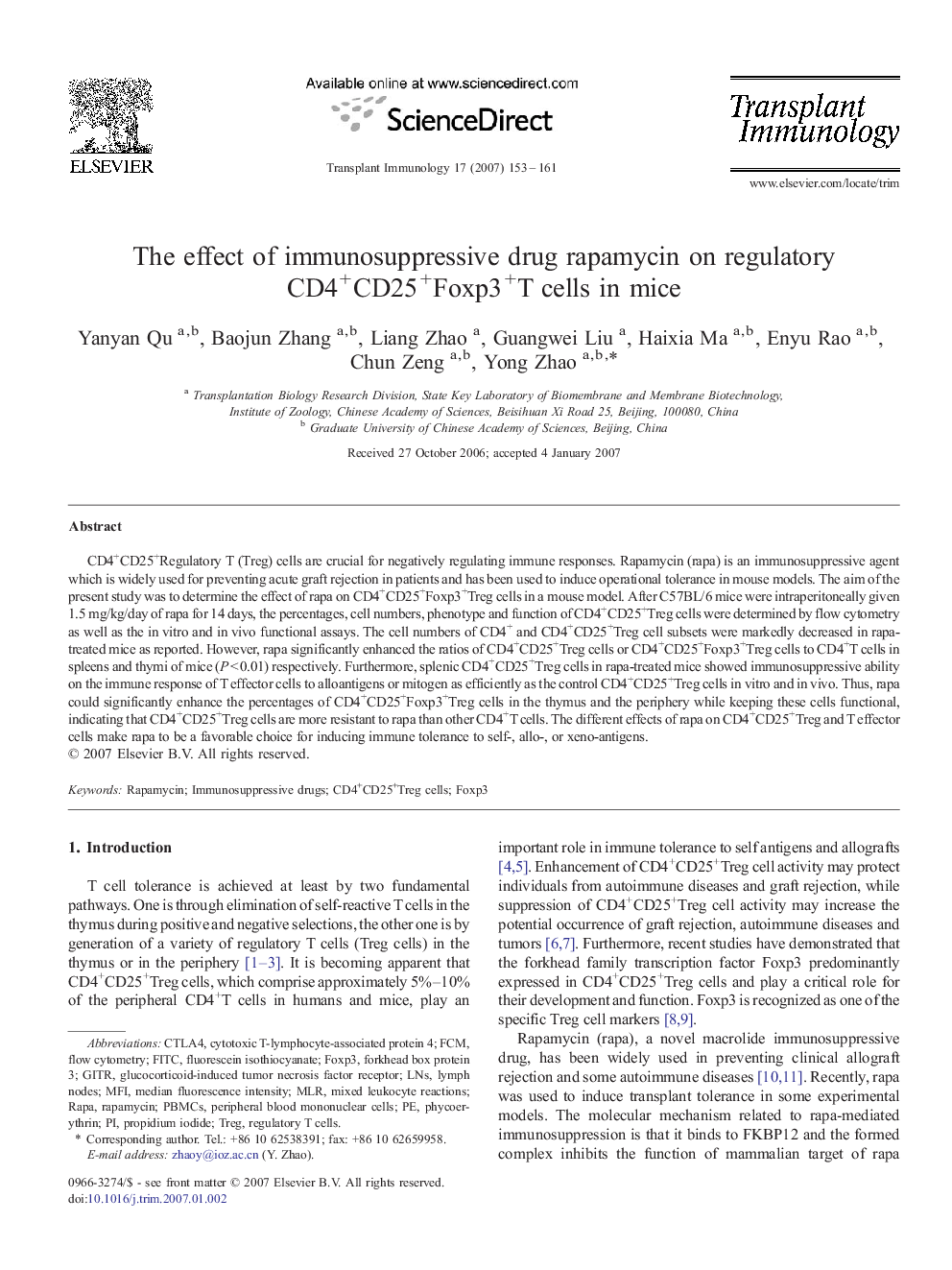| Article ID | Journal | Published Year | Pages | File Type |
|---|---|---|---|---|
| 3392698 | Transplant Immunology | 2007 | 9 Pages |
CD4+CD25+Regulatory T (Treg) cells are crucial for negatively regulating immune responses. Rapamycin (rapa) is an immunosuppressive agent which is widely used for preventing acute graft rejection in patients and has been used to induce operational tolerance in mouse models. The aim of the present study was to determine the effect of rapa on CD4+CD25+Foxp3+Treg cells in a mouse model. After C57BL/6 mice were intraperitoneally given 1.5 mg/kg/day of rapa for 14 days, the percentages, cell numbers, phenotype and function of CD4+CD25+Treg cells were determined by flow cytometry as well as the in vitro and in vivo functional assays. The cell numbers of CD4+ and CD4+CD25+Treg cell subsets were markedly decreased in rapa-treated mice as reported. However, rapa significantly enhanced the ratios of CD4+CD25+Treg cells or CD4+CD25+Foxp3+Treg cells to CD4+T cells in spleens and thymi of mice (P < 0.01) respectively. Furthermore, splenic CD4+CD25+Treg cells in rapa-treated mice showed immunosuppressive ability on the immune response of T effector cells to alloantigens or mitogen as efficiently as the control CD4+CD25+Treg cells in vitro and in vivo. Thus, rapa could significantly enhance the percentages of CD4+CD25+Foxp3+Treg cells in the thymus and the periphery while keeping these cells functional, indicating that CD4+CD25+Treg cells are more resistant to rapa than other CD4+T cells. The different effects of rapa on CD4+CD25+Treg and T effector cells make rapa to be a favorable choice for inducing immune tolerance to self-, allo-, or xeno-antigens.
